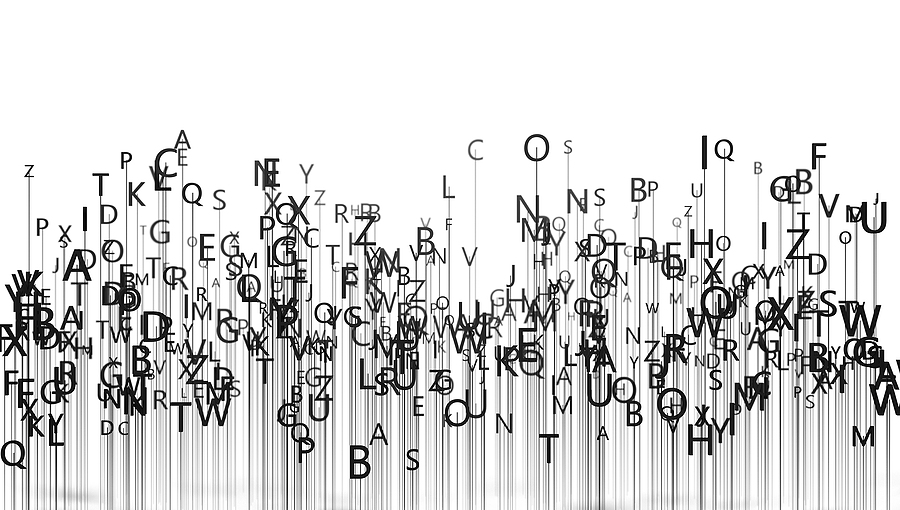
In my post last week, “Looking Back at the 2023 BK Authors Retreat,” I wrote about the poem I read at the retreat’s talent show, “Beyond AI: Three Curated Existential Fragments.” It was inspired by my poem from the 2020 virtual BK authors retreat, “Was This Poem Written by Artificial Intelligence?” After that retreat and the blog post about it, I wrote a follow up post with a similar poem.
In this post, I’ve extended the concept from my 2023 retreat poetry. The latter included three different groupings of quotes from three different books: two published by Berrett-Koehler and one from a different publisher. At the talent show, the emcee, BK author Rob Jolles, encouraged me to include audience participation, so I mentioned that I would quote from three books, two sentences from each, and asked the audience to say after the fragments were read which one was not from a Berrett-Koehler book. (Everyone came up with the right answer!)
I have included the original poem from the 2023 talent show, in Group A below, of a new poem with two other groupings, making for 18 fragments in all. The quotes are not sequential, and have been chosen semi-randomly from different parts of each book.
In extending that concept here, pick the one from each group that is not from a Berrett-Koehler book. Sources for the quotes are in endnotes. It’s best to read through each group without trying to guess the author(s), or to try to identify right away the ones not published by BK. Even if you’re not familiar with BK, you can still derive meaning from the poem without having to consider which publisher is the source for the quotes.
I believe combining these quotes, separated from their original context, can lead to new, unexpected interpretations. Just by being grouped together, they take on new meanings based on their proximity to each other. In a (somewhat) tongue-in-cheek part of my introduction at the talent show, I offered that these ‘existential fragments’ could become a new art form, and possibly a whole new line of Berrett-Koehler books (or for other publishers as well)!
18 Curated Existential Fragments
Group A
“Trust is the foundation that supports the big changes we seek in our relationships and in our institutions.” {1}
“When you look closely, our culture doesn’t really ask much in the way of practicing integrity.” {2}
“Over time the structure of an economy goes through dramatic changes in response to the primitive economic forces of supply and demand.” {3}
“Leaders of large corporations such as Coca-Cola or Apple know that much of the value of their company is not held in specific physical items or tangible assets, such as the factories and shops they may own.” {4}
“Strategic thinking can be difficult to apply when circumstances –and sometimes people—seem determined to crush it.” {5}
“Generally, humans like to talk more than they like to listen.” {6}
Group B
“We all need fresh perspective at times—but it’s hard to see life in a new light if we are groping around in the dark for the switch.” {1}
“Everyone has a story about his or her talent—what it is, how he or she has used it, and what’s gotten in the way.” {2}
“Listening—worse yet, believing—the chatter of your inner critic only conjures dark clouds of doubt and fear that block your internal light.” {3}
“Keeping quiet when work could be more successful with your input is a form of dishonoring truth.” {4}
“The key to being an artist is that you have to care enough about something to want to express it, and then you have to translate what you care about in a way that will allow people to experience it.” {5}
“Pricing is an inexact science, which generally makes it a form of art.” {6}
Group C
“Often people say they are working for the common good and shared success, but in reality they have conflicting objectives or see the priorities in a different order.” {1}
“Without a means for clarifying the true intent and intensity of our communications, we run the risk of creating distractions, diluting our messages, and even sabotaging our intended outcomes.” {2}
“Tensions of identity can occur as leaders wrestle with issues surrounding their values, integrity, and authenticity.” {3}
“Leaders who develop a keen intuitive sense of how to prepare for their next stage in life are able to proactively reinvent themselves in anticipation of future challenges.” {4}
“The world is a better place because Maya Angelou eagerly pursued her many interests.” {5}
“Many “experts” will tell you that once you’ve articulated the big values, like spiritual development, the rest of your life will fall in line behind them.” {6}
Sources:
Group A
1-2
Stuart H. Brody: The Law of Small Things: Creating a Habit of Integrity in a Culture of Mistrust (Berrett-Koehler, 2019)
3-4
Lynda Gratton and Andrew J. Scott: The 100-Year Life: Living and Working in an Age of Longevity (Bloomsbury, 2016)
5-6
Laura Stack: Doing the Right Things Right: How the Effective Executive Spends Time (Berrett-Koehler, 2016)
Group B
1-2
Don Maruska and Jay Perry: Take Charge of Your Talent: Three Keys to Thriving in Your Career, Organization, and Life (Berrett-Koehler, 2012)
3-4
Maren Showkeir and Jamie Showkeir: Yoga Wisdom at Work: Finding Sanity Off the Mat and On the Job (Berrett-Koehler, 2013)
5-6
Bob Caporale: Creative Strategy Generation: Using Passion and Creativity to Compose Business Strategies That Inspire Action and Growth (McGraw-Hill Education, 2015)
Group C
1-2
Judith H. Katz and Frederick A. Miller: Opening Doors to Teamwork & Collaboration: 4 Keys That Change Everything (Berrett-Koehler, 2013)
3-4
Steven Snyder: Leadership and the Art of Struggle: How Great Leaders Grow Through Challenge and Adversity (Berrett-Koehler, 2014)
5-6
Margaret Lobenstine: The Renaissance Soul: How to Make Your Passions Your Life (The Experiment, 2013)
